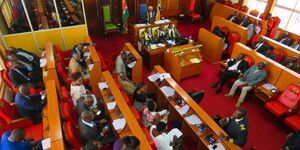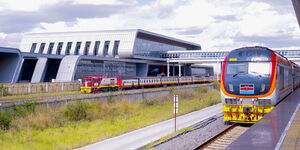The Kenya Power and Lighting Company (KPLC) has announced plans to roll out a new metering system within Nairobi Metropolis estimated to cost Ksh10 billion.
Speaking to Citizen TV on Tuesday, March 8, KPLC acting Managing Director, Rosemary Oduor, revealed that the company was targeting the entire country, further disclosing that Nairobi was the pilot county.
The KPLC boss stated that the new system will involve metering of transformers which will help the corporation reduce losses incurred through unwarranted electricity connections.
"We have reports on that metering and it actually gives us good results. We shall start in the highest gain areas where there is a population such as Nairobi, Mombasa, Kisumu and Nakuru before rolling out to other areas," she stated.
Additionally, Oduor noted that the project had already been undertaken in some parts of the capital, citing areas along Langata Road and Westlands.
"We have started on a graded approach and metering of transformers is part of our vision going forward. We have done pilots and it has proven to us that dealing with losses at the transformer level then makes it easier to tackle the losses better.
"So far we have over 50 transformers that are metered but more on a pilot basis mostly in Nairobi. We have places along Langata Road and on the western part of Nairobi," the MD disclosed.
On the costing, Oduor explained that there are an estimated 72,000 transformers in the country and the metering cost will be Ksh150,000 on each. However, she stated that the cost will go down with the advancement of technology.
She also explained that the costing was part of the reasons why they were undertaking the project gradually, hinting that the final cost of the project might be lower than the estimates.
"The metering cost are also coming down because technology gets cheaper with time. We are balancing out overtime. Right now it is more than Ksh150,000 to meter one transformer."
The move by KPLC will see the state agency reduce illegal connections that have seen security agencies making physical checks in people's homes.
Illegal connections have also been blamed on the fire incidents that have been witnessed in some areas of Nairobi and especially the slums.












